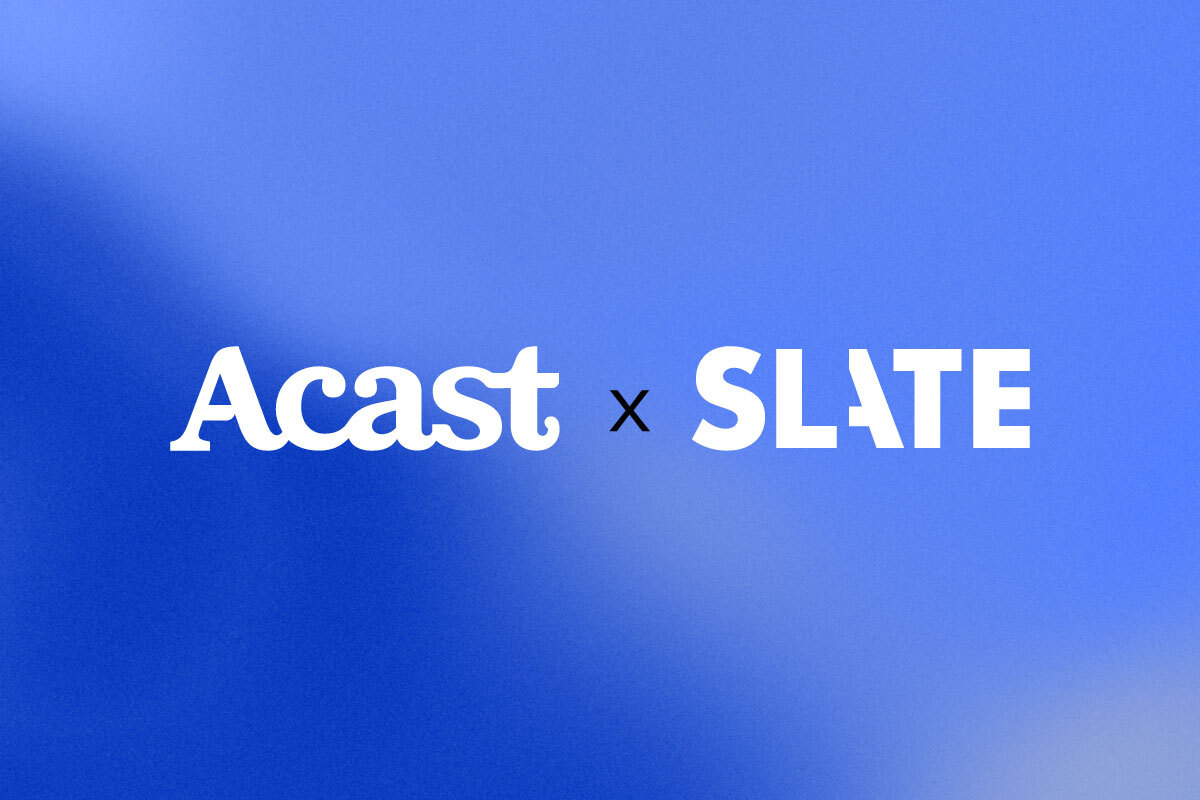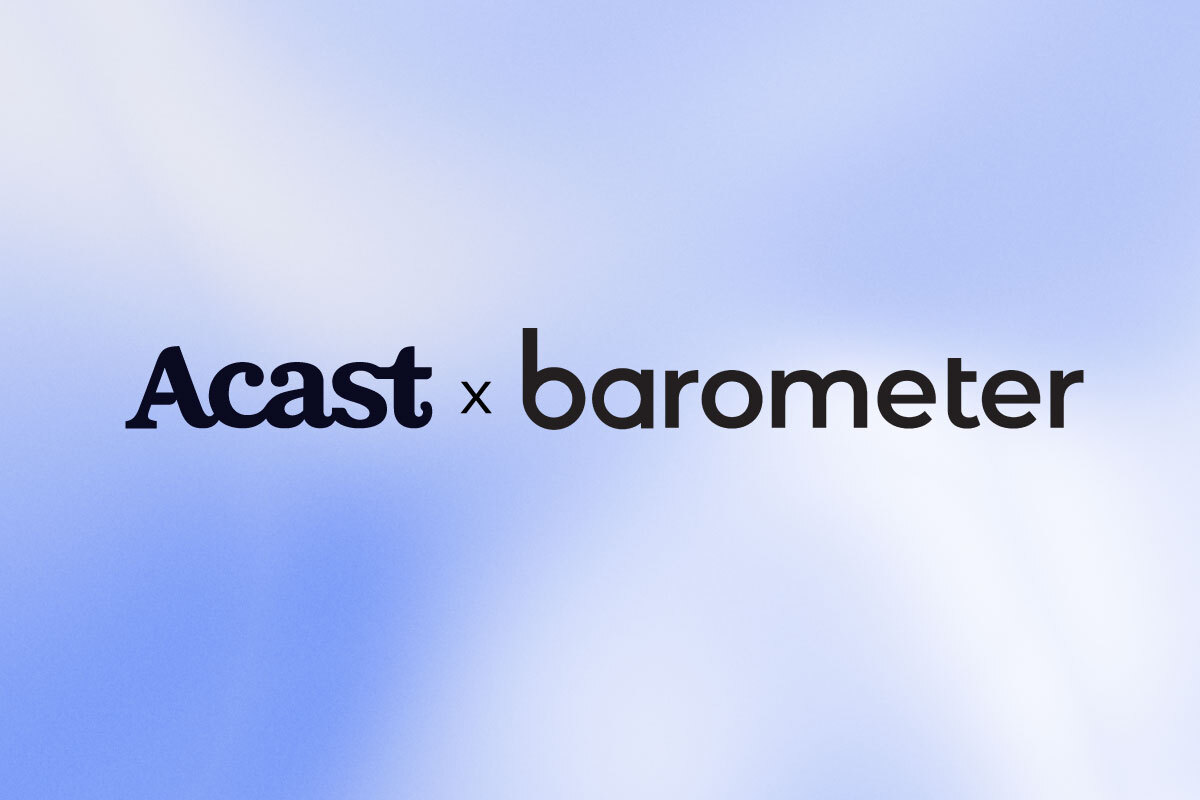Acast launches first-to-market advertiser-owned first-party data targeting solution

Press Release
Acast, the world’s largest independent podcast company, today announced that for the first time ever in podcasting, advertisers can leverage their own first-party data to target high-value audiences across the Acast Marketplace.
According to research, 88% of marketers say that collecting first-party data is a priority, and brands that use first-party data for key marketing initiatives see an uplift in revenue of nearly three times when compared to those that do not.
Despite the immense value of first-party data, until now brands have not had the ability to leverage these insights into podcast advertising due to the inherent scarcity of user identifier data signals across the medium.
Similar to connected TV, the podcast advertising ecosystem is a data scarce environment, with limited availability of user identifiers for inventory addressability. This has created challenges for advertisers to target podcast audiences with the same strategies they often use across other forms of media.
Acast has now solved these challenges by developing an industry-first identity graph tailored for podcasting. Through a combination of IP address, as well as other unique listening consumption signals, the Acast identity graph will enable advertisers to onboard their own first-party data and to find and match their high-value audience segments across the Acast Marketplace, creating new ways to target relevant audiences who consume podcasts.
The new Acast identity graph and advertiser first-party data onboarding solution is now available in Acast’s US and Australian markets for both direct and programmatic buys.
“We’ve created a bridge between the media buyer and podcast content supply that effectively enables brands to use the first-party insights they already have to serve more relevant ads in podcasts. It’s a massive first for the industry that not only drives revenue for brands, but creates a more enjoyable experience for listeners and ultimately increases monetization potential for podcasters – which is at the heart of everything Acast does,” said Global Head of Ad Innovation Elli Dimitroulakos.
Acast’s first-party data solution comes to market as advertisers continue to prepare for the anticipated death of the cookie and restrictions on use of mobile identifiers, which will require them to rely on their own first-party data. For podcasting specifically, this solution is particularly well-timed as Wall Street analysts have recently projected the podcast advertising market to triple in value, reaching $6 billion by 2026.
The news of Acast’s first-party data targeting solution comes on the heels of the company debuting second on Podtrac’s inaugural Sales Network Ranker, which was announced last week. As a leader in podcast advertising, Acast works with more than 2,400 advertisers each year. Some of the biggest brands partnering with Acast include Amazon, State Farm, Macy’s, Ikea, Klarna, Ulta, and more.
For more information on first-party data targeting please contact sales@acast.com.
Press Release
Acast, the world’s largest independent podcast company, today announced that for the first time ever in podcasting, advertisers can leverage their own first-party data to target high-value audiences across the Acast Marketplace.
According to research, 88% of marketers say that collecting first-party data is a priority, and brands that use first-party data for key marketing initiatives see an uplift in revenue of nearly three times when compared to those that do not.
Despite the immense value of first-party data, until now brands have not had the ability to leverage these insights into podcast advertising due to the inherent scarcity of user identifier data signals across the medium.
Similar to connected TV, the podcast advertising ecosystem is a data scarce environment, with limited availability of user identifiers for inventory addressability. This has created challenges for advertisers to target podcast audiences with the same strategies they often use across other forms of media.
Acast has now solved these challenges by developing an industry-first identity graph tailored for podcasting. Through a combination of IP address, as well as other unique listening consumption signals, the Acast identity graph will enable advertisers to onboard their own first-party data and to find and match their high-value audience segments across the Acast Marketplace, creating new ways to target relevant audiences who consume podcasts.
The new Acast identity graph and advertiser first-party data onboarding solution is now available in Acast’s US and Australian markets for both direct and programmatic buys.
“We’ve created a bridge between the media buyer and podcast content supply that effectively enables brands to use the first-party insights they already have to serve more relevant ads in podcasts. It’s a massive first for the industry that not only drives revenue for brands, but creates a more enjoyable experience for listeners and ultimately increases monetization potential for podcasters – which is at the heart of everything Acast does,” said Global Head of Ad Innovation Elli Dimitroulakos.
Acast’s first-party data solution comes to market as advertisers continue to prepare for the anticipated death of the cookie and restrictions on use of mobile identifiers, which will require them to rely on their own first-party data. For podcasting specifically, this solution is particularly well-timed as Wall Street analysts have recently projected the podcast advertising market to triple in value, reaching $6 billion by 2026.
The news of Acast’s first-party data targeting solution comes on the heels of the company debuting second on Podtrac’s inaugural Sales Network Ranker, which was announced last week. As a leader in podcast advertising, Acast works with more than 2,400 advertisers each year. Some of the biggest brands partnering with Acast include Amazon, State Farm, Macy’s, Ikea, Klarna, Ulta, and more.
For more information on first-party data targeting please contact sales@acast.com.





